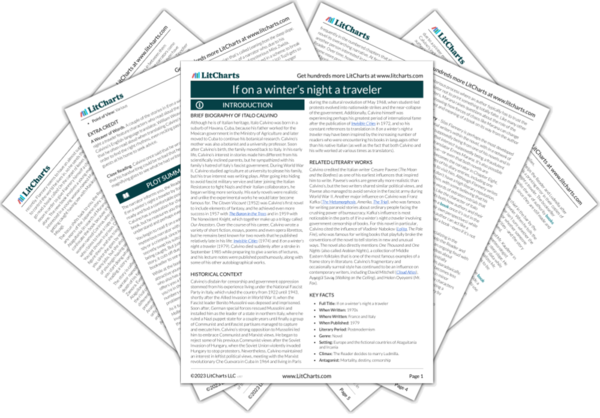On the one hand, this passage suggests that the story fragments are more related than the narrator realized: when you put all their titles together, it forms a sentence. But on the other hand, this connection only deepens the mystery, presenting what seems to be the opening lines of a totally new story. The Reader learns that it’s possible to find connections even in a modern world where the truth is fragmented, but he also learns that he may never receive the closure he’s looking for.
